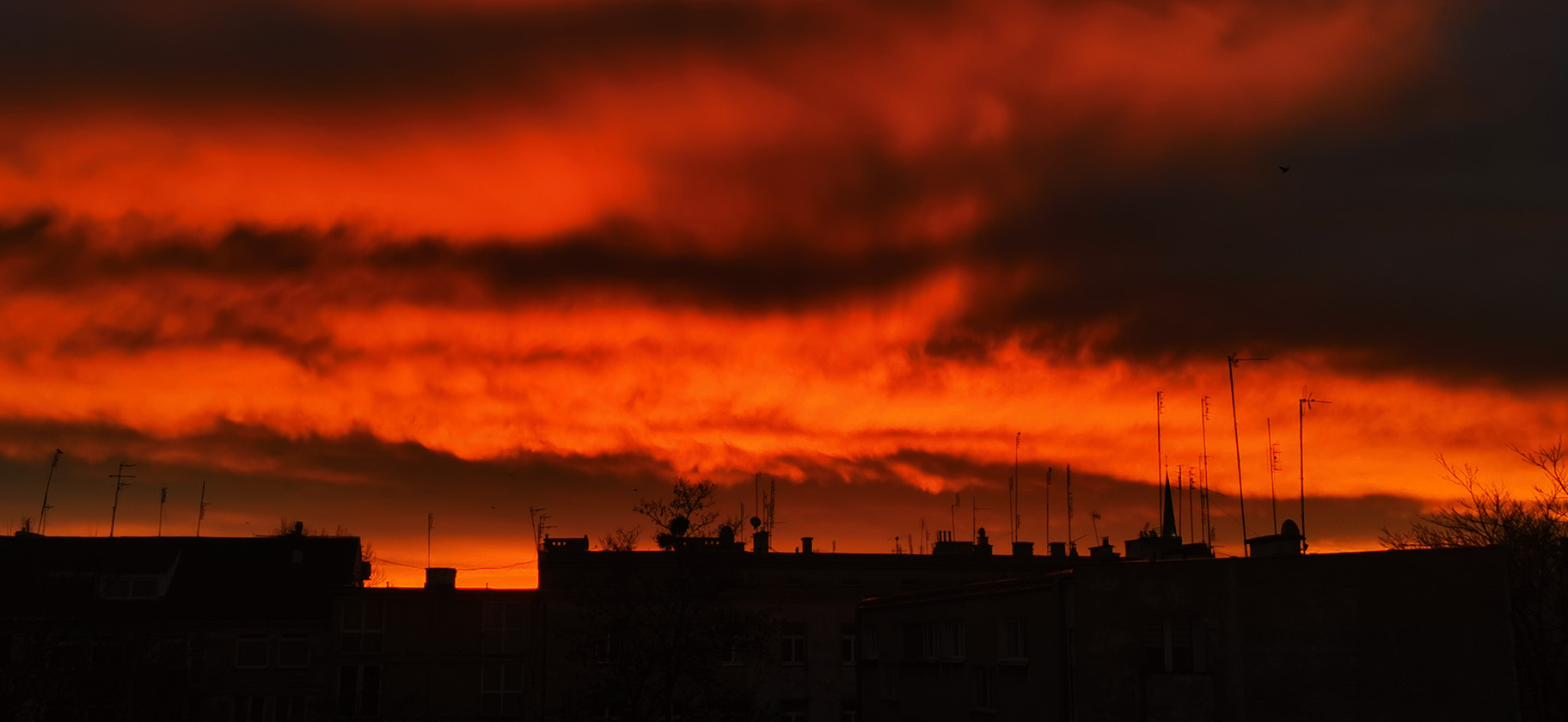Sudden Spring
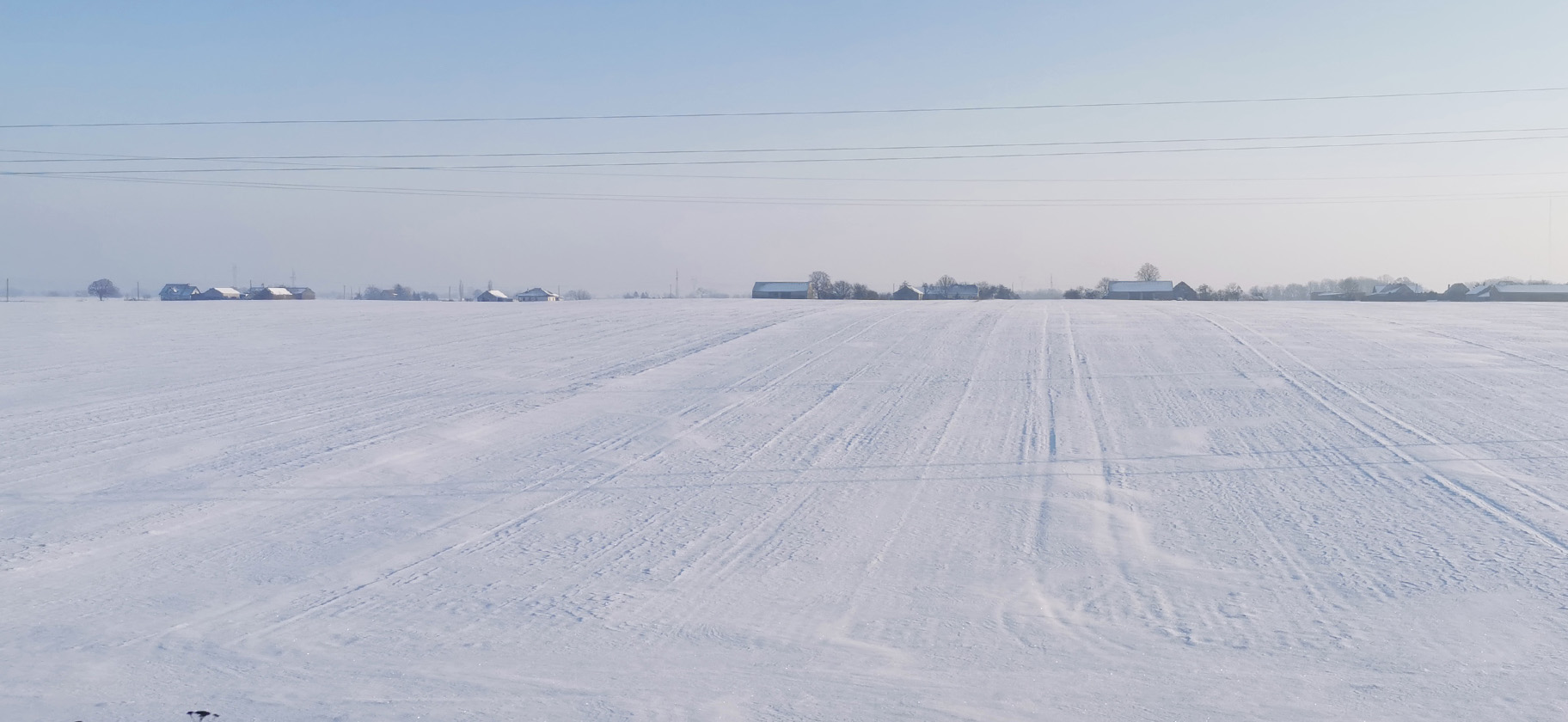
Winter had arrived. Arctic winds had blown in off the Baltic Sea and collided with the warm air still lingering over Silesia and the flatlands north of the Tatras leaving Poland blanketed under snow. When the dark clouds scattered and the sun came out, the country turned dry and cold.
In the early hours of a January morning, an old POLREGIO creaks along the frozen rails out of Gdansk headed south to Bydgoszcz. POLREGIOS are slower and cheaper than the intercity trains, but they make all of the stops. With the mercury sinking to almost 20 degrees below zero, for at least today the weather, instead of the pandemic, had become the Polish people’s preferred excuse to stay inside. From a time when efficiency was prized over comfort, the old wooden seats and their thin layer of cracking fake leather upholstery took little time to stiffen in the cold. A man in a suit, headed to a small town for business, curses the heavens for having him out on the Przewozy Regionalne on a day as cold as this one. He clenches his fists within his leather gloves to keep the blood circulating. A college student is heading home to see his family despite the government’s orders not to mix households. It has been three months since he has been home and winter classes have been delayed for another week with most being held virtually. Besides, mother’s orders are mother’s orders. A drifter sits in the corner with his head resting on the window. The moisture from his breath collects and freezes almost instantly making a layer of ice that blurs the scenery outside. Aside from a few latches and loose bolts swaying with the motion of the train the scenery in the car does not change and it is too cold to read a book. The drifter blows on the window and tries to scrape the ice away. Like Pyramus, he peaks longingly through a small hole only for it to quickly fill with icy fog from his own breath.
Trees stand motionless keeping watch over the icy plain. Birds have emptied the skies and retreated to areas behind human walls and near chimneys blowing smoke from farmstead to farmstead. A lone automobile speeds along the freeway parallel to the railway chugging along breathless in the cold and spitting black ash from its tailpipe. A gust of wind blows over the snow-covered grassland sending a top layer of loose ice shards spinning through the air.
An old woman bundled up in thick layers and scarves wrapped around her face and head needs help getting onto the train with her cartful of groceries. She shows the agent her ticket and curses in Polish for her entire ride of one stop.
Large industrial lots filled with trucks and cargo containers mark the train’s return to the cities. Off in the distance, church spires and clock towers rise above the buildings in the city centre. Trains have not run on coal for almost 100 years, but steam still rises from every spinning wheel and steel gear as it pulls into the station drifting ghost-like between the legs of the few passengers who were brave enough to step outside today.
Snow removal vehicles were not able to plough away the remnants of the blizzard before the cold front moved in. Every step along the street crunches under boots sending shivers up the spine. The shops are bolted shut. Warm mittens do not have the precision grip required to insert and turn a key so those returning home need to work quickly to remove one mitten and fidget at the door to find the correct key and gain entry. Every window is fogged from the 50-degree difference between the outside and the inside and a kettle of warm tea is on a constant boil.
Night descends on Bydgoszcz as crystals of ice form on the edges of the windows. The air stings the cheeks and bites the teeth. Any body part exposed for more than even a few seconds feels scraped and pulled apart. The streets empty but for a single city bus making the route along Jagiellonska and up and down the main street between the highways. The driver has the heat on and no one is fool enough to be waiting at any of the stops. Not at this hour; not in this cold.
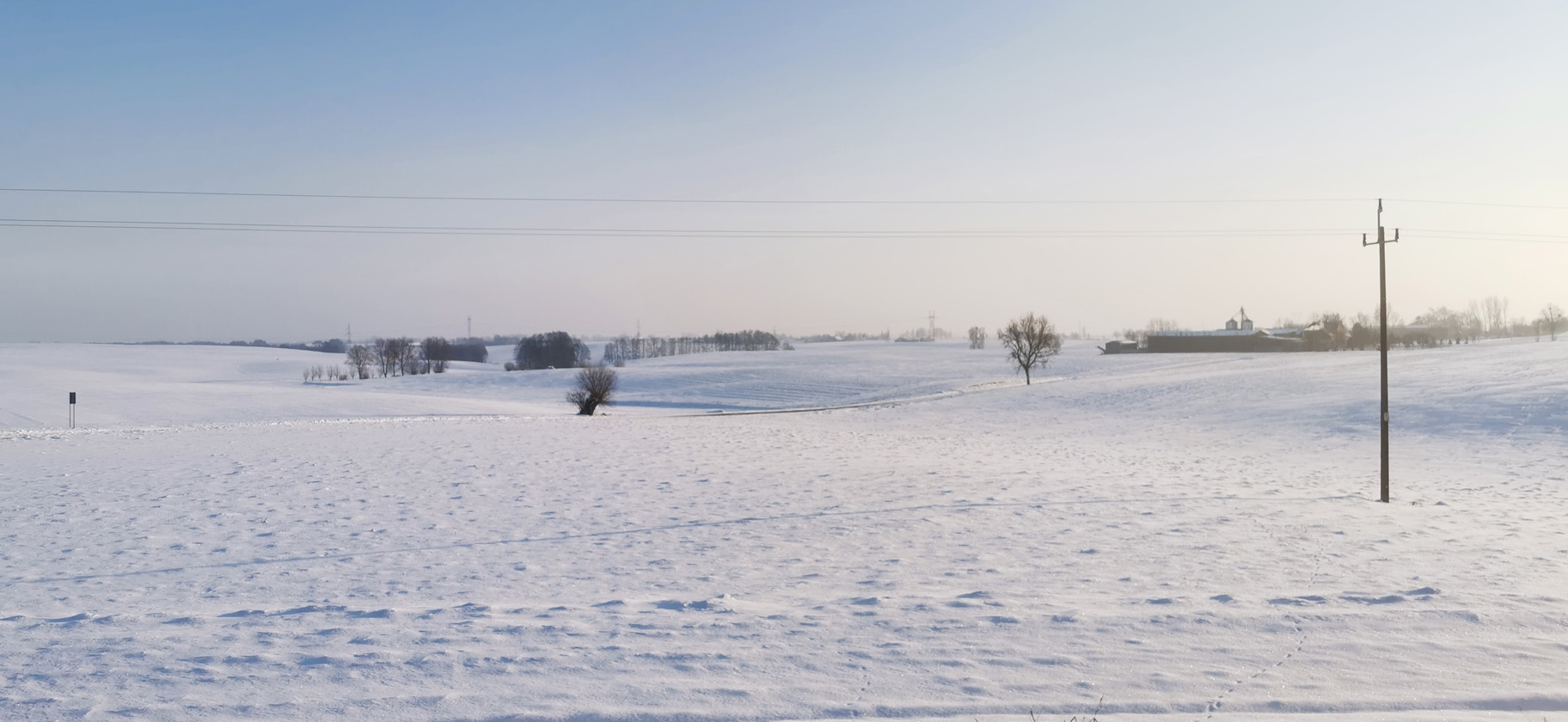
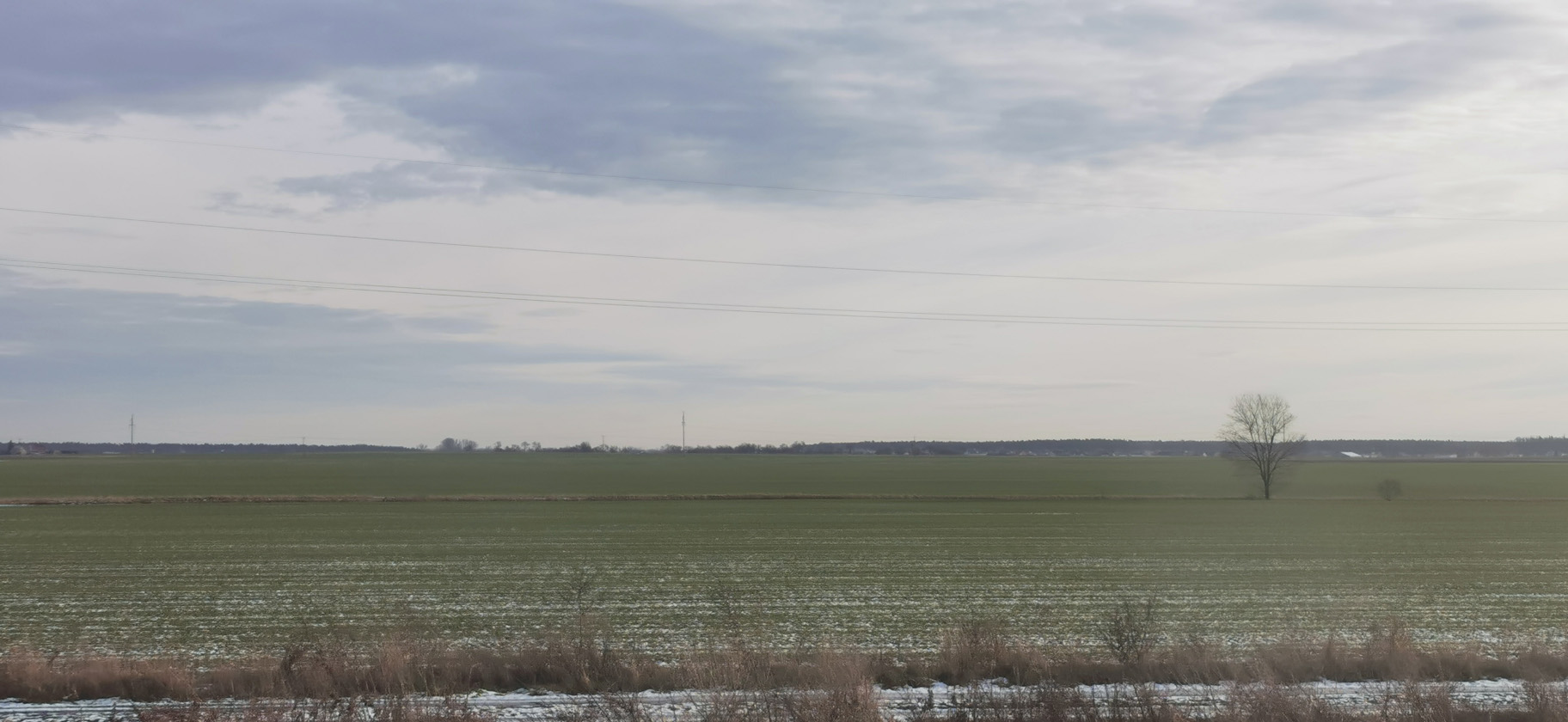
A brand new train and a brand new day. Comfortable seats in closed temperature-controlled compartments with electricity and ports for charging electronics. New fronts of warm air have scattered the other pressure systems and enveloped the whole of Poland in a warm hug. The metre-thick layer of snow that had covered the country melts in minutes revealing the still green grass beneath. Birds have taken to the skies again. There is traffic on the highways.
In Wroclaw, the locals take to the streets stopping in at the shops around the market square for sweets like paczki and ice cream. Restaurants and terraces only do takeaway, but the squares and parks are free to stroll through. The once-frozen Oder is flowing freely again. 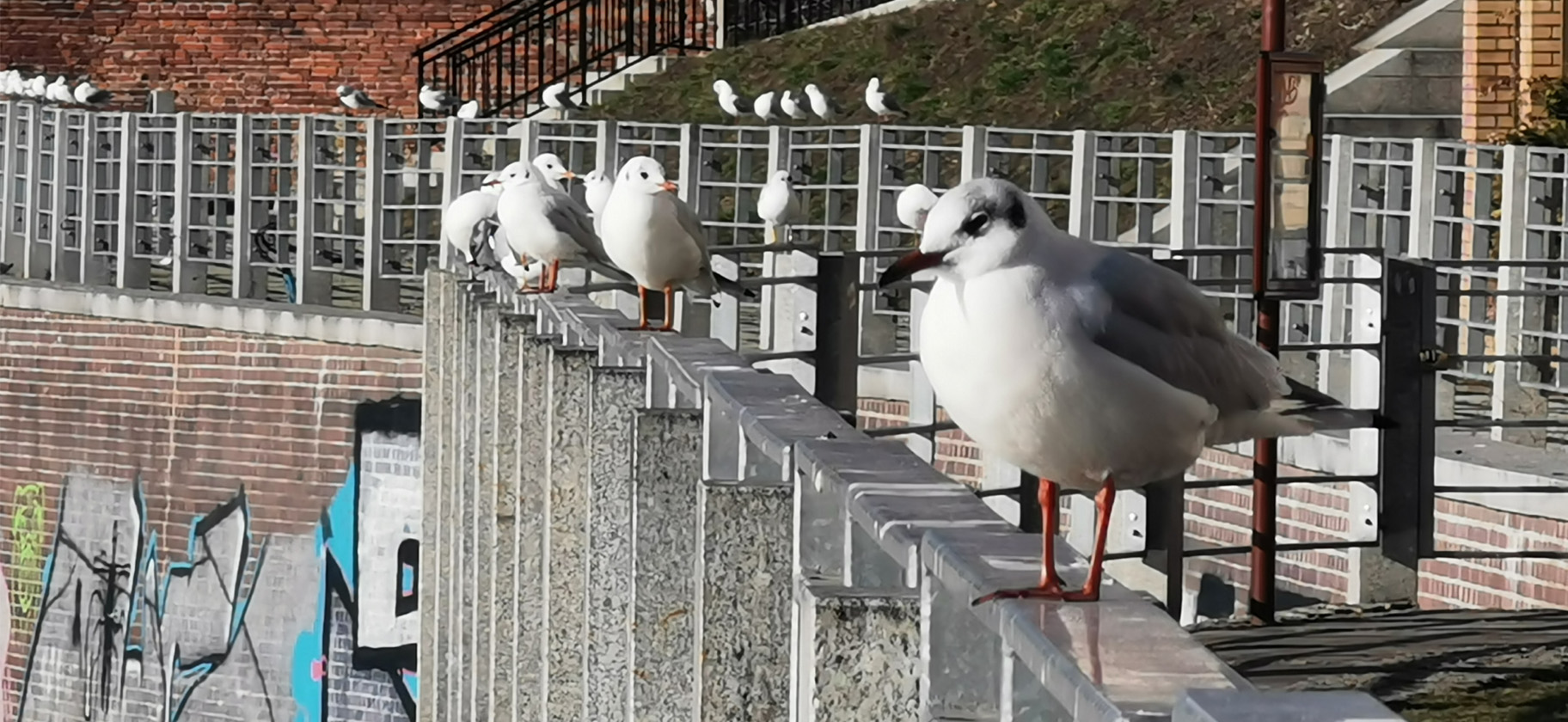 Seagulls sit on the wall along the riverwalk soaking in the sun. New moms push prams, their arms bare, with sweaters now wrapped around their waists.
Seagulls sit on the wall along the riverwalk soaking in the sun. New moms push prams, their arms bare, with sweaters now wrapped around their waists.
The windows on every apartment swing open to let in the fresh air. A single trickling stream of melted snow winds through the cobble on its journey to the sewer. Rays of sun find spaces through the thinning layer of snow and warm up the clay and asphalt which is bare and dry by the early afternoon. The temperature has climbed to almost 20 degrees as people remove their sweaters. Sweat drips down the temples of those still wearing their beanies not having clued into the fact that it may be January though it feels like July.
It has been a difficult year and the Poles have suffered. But this sudden spring reminds everyone just how quickly things can change. Winter may cover everything in sight and a chill wind may force everyone running to their homes for respite but a sunnier tomorrow is always ready to remind us that winter cannot last forever.
